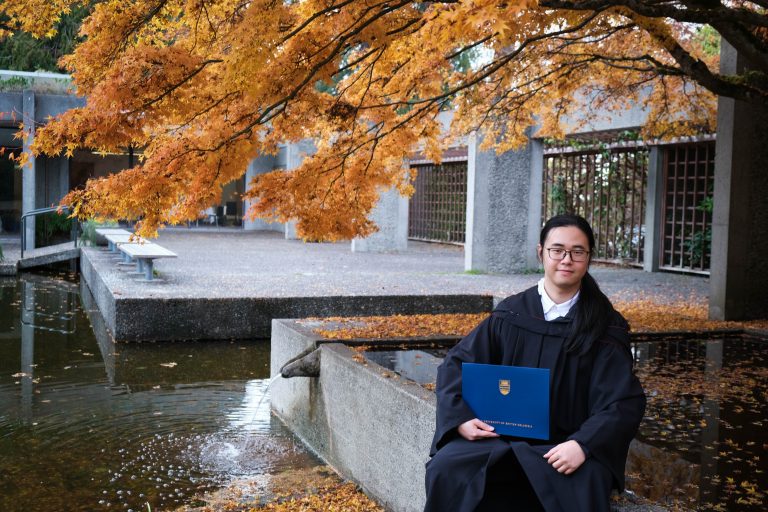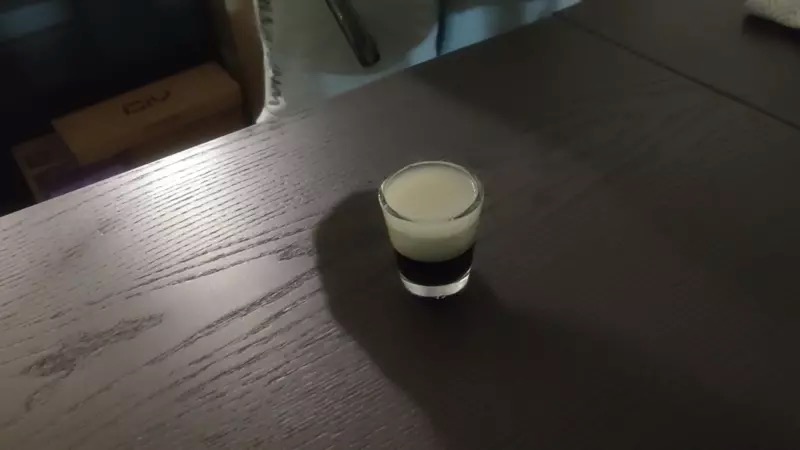
Rui Xi is a current PhD student in the Department of Electrical and Computer Engineering at UBC. He has previously earned a B.Eng in Software Engineering from Sun Yat-sen University, as well as an MASc in ECE at UBC. Much of his Master’s research focused on the security of blockchain applications and finding ways apps can be made safer for users. For this reason Rui developed GoHigh, a fully-automated tool that replaces low-level functions in smart contracts to prevent users from having their money stolen by hackers.
ECE has had the opportunity to interview Rui about his work and his experience in ECE! Keep reading to learn more!
Congratulations on completing your Master’s! Can you tell us a bit about the research topic you chose?
My research focuses on the security of blockchain applications. Every time I talk about my research topic with new friends, they always ask the same questions: How do I earn money from blockchain? Which crypto should I invest in? My answer is a smile. Just a smile. Investing money in the blockchain is really a gamble that needs courage. First, the crypto price goes up and down; second, you don’t know whether and when your life savings are gone due to a bug in your crypto wallet application. This kind of application, together with blockchain gaming applications, Non-Fungible Tokens (NFTs), and Decentralized Finance Exchanges (DEXs), has a universal name, called “smart contracts”.
My work is about finding bugs in smart contracts and fixing them. However, this is a tough job since hundreds of thousands of contracts have been deployed to the Ethereum blockchain after it was created in 2016 and the number is still increasing by 10,000 daily. To relieve this burden, I designed and implemented an automated tool, GoHigh , to do the bug-fixing jobs with very little human effort.
What are some possible future impacts of this research?
The blockchain world is like the wild west – scams, Ponzi schemes, rug pulls, and hacks happen every day. My research (and hopefully, along with my future research) is bringing order to it. The tool, GoHigh, is my very first step. It fixes a specific category of smart contract vulnerability (termed low-level functions) and thus prevents hackers from exploiting this vulnerability to steal your money.
A safer blockchain world also attracts new users. Just imagine that you can exchange your Canadian Dollar for U.S. Dollars almost instantly without paying any bank processing fees. Blockchain is a good platform to do this. With GoHigh and other security work on blockchain, it is promising that it will become a safe, convenient, and globally-recognized payment method.
How did you get started studying this topic?
It dates back to my undergrad study. I took a blockchain 101 course at that time and soon, I was amazed by how powerful the Bitcoin blockchain is. Almost at the same time, the Ethereum blockchain was released and it allowed everyone to publish their own smart contracts, which greatly extended the use cases of the blockchain. However, the more I learn about it the more problems I find with the Ethereum blockchain, especially in its security. And so I started working on this topic.

If you could go back in time and meet yourself at the start of your Master’s, what is some advice you would give your past self?
Plan For the Worst, Hope For the Best. We all faced a global pandemic of COVID over the last few years. I faced all kinds of difficulties like many of us did: waiting for months to get a travel visa, booking a flight that might cancel randomly, earning a living with a limited source of funds while paying the tuition fees, etc. I was not prepared at that time and so I pulled through a tough time.
Now I learned the importance of discipline. Plan for both research and spending ahead of time, don’t rush to submit a paper at the last second of the deadline, and don’t spend every cent on your credit card. Most importantly, never give up hope. A quote I find inspiring is: “Until the day when God will deign to reveal the future to man, all human wisdom is contained in these two words — ‘Wait and hope. ‘”
Why did you choose ECE?
ECE has an incredible faculty and a diverse environment. My professors are always willing to help, no matter the coursework or the research they are doing outside of the classroom. Even though some of the professors you may have are not in your area of research, they can still provide valuable advice from their own experience. Just don’t hesitate to reach out!
What do you like to do outside of work and research?
I make cocktails. I picked up bartending during my quarantine time. My favorite is a Negroni, a strong cocktail made with gin, sweet vermouth, and Campari. It tastes like herbs and licorice in the beginning, but the sweet and fruitful notes spark immediately if you overcome the bitterness.

What do you hope to accomplish after your PhD program? Where do you hope to be in 10 years time?
Your question reminded me of when I was writing my personal statement for the application to UBC. I wrote that my future work could push the boundary of human knowledge and I would keep working on this after my PhD program. I regret it now. Any technology, without being used to help people, is meaningless to human beings. I hope that, in 10 years after my graduation, at least 1% of the population worldwide can benefit from my work directly or indirectly.
